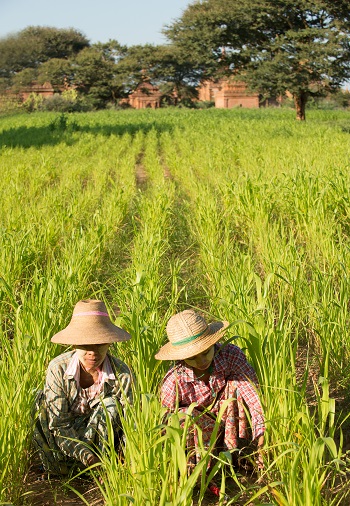26 January 2018 | Report
Country Context Papers: Indonesia, Myanmar, the Philippines, and Vietnam
Summary
This series of papers provide a snapshot of the factors that facilitate or inhibit women’s economic empowerment in Indonesia, Myanmar, Philippines, and Vietnam.
The country context papers focus on laws and their implementation; social norms; access to markets and productive assets; business and work; and political representation. They also consider the key actors and institutions that are driving or resisting policy reforms that promote gender equality in the world of work, and provides recommendations for addressing the underlying causes of gender gaps.
This series of papers is published by the Sydney Southeast Asia Centre at the University of Sydney, commissioned by Investing in Women.
Highlights
- There are no serious national legal barriers to women’s participation in the formal sector workforce, in entrepreneurship, or in leadership positions in the public and private sectors. However, cultural and structural factors – most notably the pervasive belief that care of home and family is a woman’s responsibility as well as poor social infrastructure – have led to a situation where women are less likely than men to be in the workforce, to own productive assets or own or manage medium or large companies, or to exercise economic leadership at the community or national level.
- Over the last decade, there have been significant advances in social and economic indicators for women. Despite gains, women continue to face obstacles in accessing rights. Many of these obstacles are common to women across the developing world, however the level of institutionalised gender discrimination in Myanmar is relatively high.
- The Philippines has been identified as having the most conducive business and regulatory environment for women-owned micro, small, and medium enterprises. However, the paper also discusses how social norms around women’s family and care responsibilities can sometimes contribute to the failure of women’s MSMEs in the Philippines.
- Vietnam’s greater economic openness has the potential to offer a range of exciting opportunities for both women and men, however this will require greater investment in human capacities and skills development, with particular attention to women and girls, as well as a more equitable public provision of quality education, health and other care services.
View other Resources
World Economic Forum Global Gender Gap
The Global Gender Gap Index annually benchmarks the current state and evolution of gender parity.
World Economic Forum Global Gender Gap
The Global Gender Gap Index annually benchmarks the current state and evolution of gender parity.
Women, Business, and the Law 2024
Women, Business and the Law 2024 is the tenth in a series of annual studies measuring the enabling environment for women’s economic opportunity in 190 economies.


